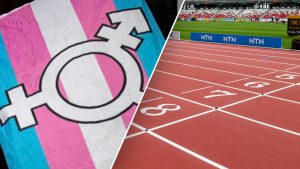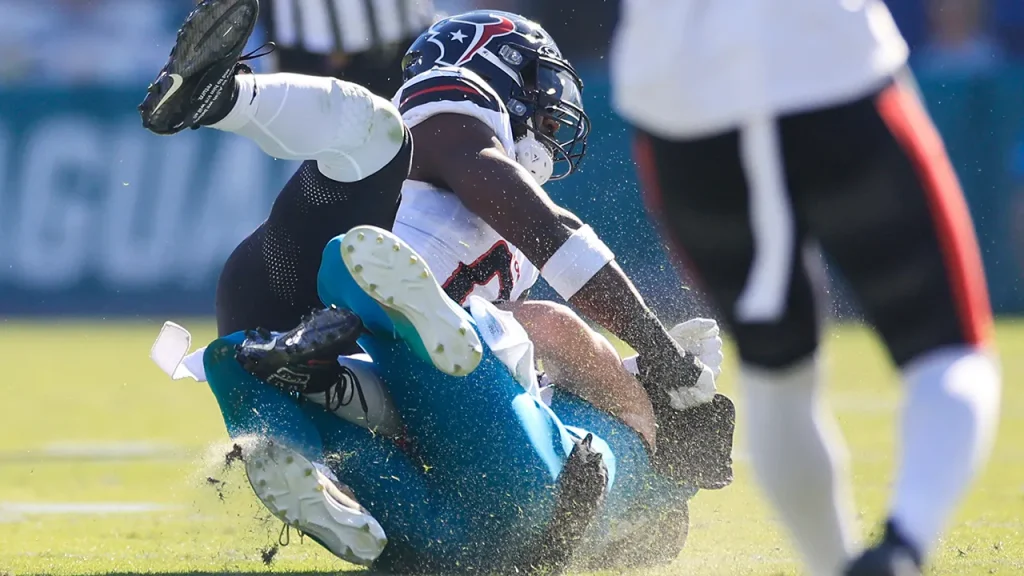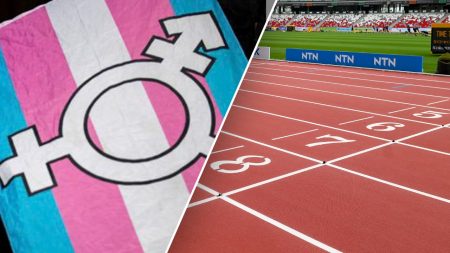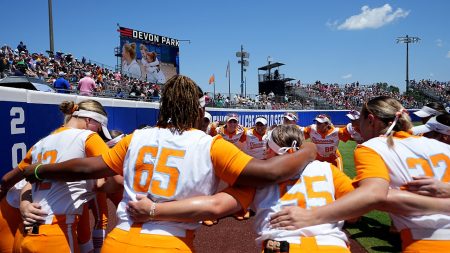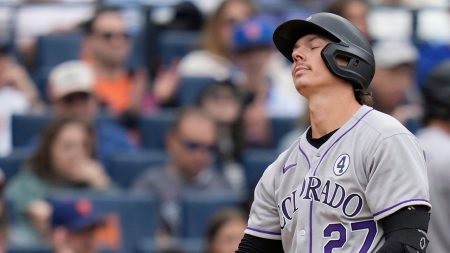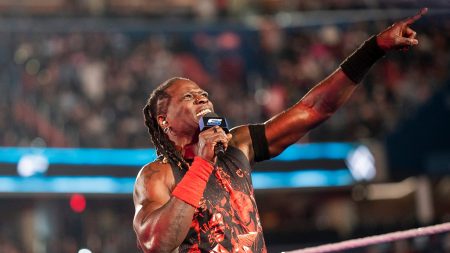Houston Texans linebacker Azeez Al-Shaair faced a three-game suspension from the NFL due to an illegal hit on Jacksonville Jaguars quarterback Trevor Lawrence, a decision upheld after Al-Shaair’s appeal. The ruling was confirmed by NFL Senior Vice President Michael Signora, who communicated that hearing officer Ramon Foster, appointed by the NFL and NFLPA, upheld the suspension. The incident occurred late in the first half of a closely contested game, where Lawrence attempted to scramble left on a second-and-7 play. As Lawrence initiated a slide, Al-Shaair raised his forearm and struck the defenseless quarterback, leading to immediate repercussions on the field.
The aftermath of Al-Shaair’s hit quickly spiraled into chaos, with Jacksonville players reacting aggressively to defend their quarterback. Tight end Evan Engram was among the first to confront Al-Shaair, pushing and shoving ensued, igniting a physical altercation between members of both teams. Meanwhile, Texans head coach DeMeco Ryans suggested that Lawrence bore some responsibility for the violent nature of the hit, proposing that the Jaguars players may have overreacted to the situation. This point of view stirred further discussion regarding player safety and responsibility on the field.
In the wake of the incident and the ensuing discussions, Al-Shaair publicly addressed the issue, condemning the “racist and Islamophobic” reactions from some fans following the incident. He expressed remorse for the unintended outcome of his actions, emphasizing that he never aimed to harm anyone during gameplay. In a statement, Al-Shaair articulated his philosophy on competition, declaring his intent to play hard without causing injury, and highlighted the importance of player safety post-game as both teams compete to support their families.
Al-Shaair further elaborated on the events that transpired during the game, indicating that he did not recognize Lawrence’s sliding motion until it was too late. He apologized directly to Lawrence and conveyed his regret for the unfortunate encounter, underscoring that any potential injury was never his intention as a player. He also acknowledged the defensive reactions from Lawrence’s teammates, understanding their protective instincts on the field and appreciating the camaraderie that drives team dynamics.
In addition to the suspension, Al-Shaair faced disciplinary actions earlier in the season when he was fined for punching Chicago Bears running back Roschon Johnson during a sideline scuffle. This incident further contributed to discussions about his conduct as a player and raised concerns over repeat offenses impacting his reputation and career. Such events could shape organizational perspectives on player discipline as well as broader conversations about player behavior in the highly competitive environment of the NFL.
Amidst these controversies, injuries took center stage as Lawrence was placed on injured reserve, marking the end of his season. The decision highlighted the serious implications of in-game injuries and reinforced the league’s ongoing struggle with issues surrounding player safety. The incident raises critical questions for the NFL on how to enforce player conduct, ensure safety for all players, and manage disciplinary measures effectively to create an environment that respects both competition and the well-being of its athletes.


